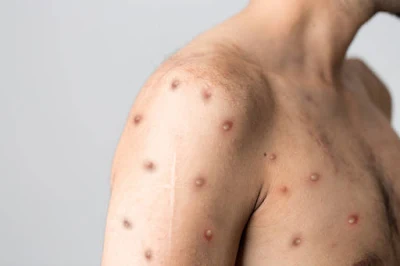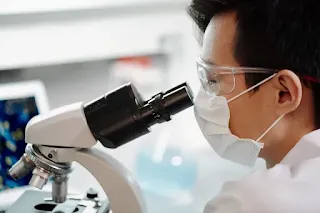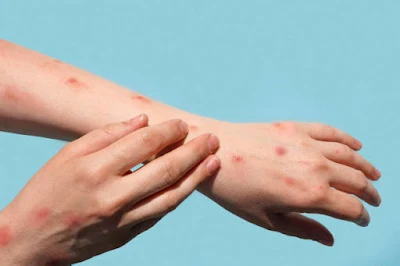What you need to know about monkeypox
Monkeypox, until now generally counted on the list of a rare diseases, but now it is spreading all over the world. Take a look at what you need to know about the monkeypox disease, along with symptoms and how to avoid it.
What is monkeypox? and What do you need to know about monkeypox?
According to the US Centers for Disease Control and Prevention (CDC), monkeypox is a "rare disease infection caused by exposure to the monkeypox virus." Part of a family of viruses similar to smallpox, the symptoms of monkeypox are similar to those of smallpox but mild and are rarely fatal.
Origin of monkeypox
Monkeypox was first reported in 1958 in a research lab on monkeys. Despite the name "monkeypox", where and how the smallpox disease originated is still unknown, but it is believed to have originated in Africa from rodents. Monkeypox in humans was first reported to the world in 1970 in the Democratic Republic of the Congo.
Dilatation
Before the outbreak of monkeypox in 2022, it was confined to African countries, linked to travel to countries where the disease was prevalent, or to animals brought in (imported) from such countries. In 2022, the outbreak of this disease is now spreading all over the world.
Ways to get infected with monkeypox
Transmission from infected animals
People can become infected with the disease in several ways from infected animals. Transmission can occur if a person is scratched or bitten by an infected animal, or if they prepare or eat the meat of an infected animal or use products from an infected animal.
Person-to-person transmission
Although not highly contagious, monkeypox can be spread from person to person in several ways:
- through direct contact with an infectious rash, scabs, or body fluids,
- through prolonged face-to-face contact or close physical contact,
- coming into contact with objects that have come into contact with an infectious rash or body fluids,
- from a mother to her fetus.
Symptomatic transmission
Infected individuals can spread the virus from the onset of their rash to full recovery until a new layer of once healthy skin has formed. Typically, people are contagious for two to four weeks. Once the symptoms are cured, a person cannot spread the virus to others.
Physical transmission
One of the main reasons monkeypox spreads between humans is through intimate contact, which includes hugging, kissing, and touching. Having multiple partners can increase a person's chances of contracting the virus.
Monkeypox Symptoms
Symptoms of monkeypox include rash, fever, headache, muscle aches, back pain, swollen lymph nodes, chills, and tiredness. The rash can appear as pimples or blisters on the face, inside the mouth, or anywhere else on the body such as the arms, legs, chest, or private parts. Some people only have a rash, while others may have other symptoms along with the rash.
Treatment
Although there are no treatments designed specifically for monkeypox, we already have antiviral drugs or vaccines developed for smallpox that can be used to treat the disease. Patients with a weakened immune system are at higher risk of severe disease and may be treated with an antiviral such as tecovirimat.
Deterrence
The best way to avoid contracting the monkeypox virus is to avoid close contact with infectious individuals, such as skin-to-skin, face-to-face, and avoid touching or using any of their objects, such as bedding, clothing, towels, and utensils. Is. Also, wash your hands thoroughly with soap and water or use hand sanitizer.
In Africa, it is best to avoid contact with rodents, primates, and sick or dead animals, as well as anything that has come into contact with them.
What to do if you get monkeypox ?
If you do become infected with the virus, make sure to stay at home until your rash has completely healed, isolated from everyone else. If you share a residence with others, stay in a separate room or as far away from your housemates as possible, including your pets, so that they don't get infected. If you cannot be separated from your family members, be sure to wear a well-fitting mask.
If you develop symptoms of monkeypox, even mild ones, talk to your doctor for advice.
Testing
Patients can be tested for monkeypox by a real-time or conventional polymerase chain reaction (PCR) test, which requires swabs from lesions. Patients can also be tested by next-generation sequencing or isolation in culture from a clinical specimen.
Vaccination
Vaccination can become the best treatment for this disease to prevent and avoid it. JYNNEOS and ACAM2000 are the two vaccines currently available to prevent monkeypox in the United States. They can also be administered before or after recent exposure to prevent illness.
Because the vaccine supply is limited, only certain people should be vaccinated for the virus at this time:
- known contacts of individuals with monkeypox,
- Those who have had intimate contact with someone who has been infected with monkeypox within the past 14 days, and multiple intimate partners.
- Persons who have been living in any area for the past 14 days where cases of monkeypox have been reported.
Pets or Domestic animal
Although monkeypox originated in animals, it is currently unknown whether common household pets such as cats and dogs can be infected with the virus. And while some mammals can be infected, domestic adult rabbits can be infected.
If you become infected with monkeypox, you should avoid contact with all animals, including pets, to prevent infection. If your pet has had close contact with an infected person, it should be kept at home and isolated for 21 days. See your veterinary doctor for more information and get their advice.
Monkeypox outbreak in 2022: global situation
Before the 2022 outbreak, cases of monkeypox outside Africa were fairly rare. However, monkeypox has now spread to almost 60 different countries around the world. More than 80% of cases have been reported in Europe so far.
The West African virus identified in the 2022 outbreak is rarely fatal, but "people with weakened immune systems, children under the age of 8, people with a history of eczema, and those who are pregnant or breast-feeding may have severe symptoms." be more likely to become seriously ill. or die." Be sure to talk to your doctor if you have any doubts about having the disease.














0 Comments